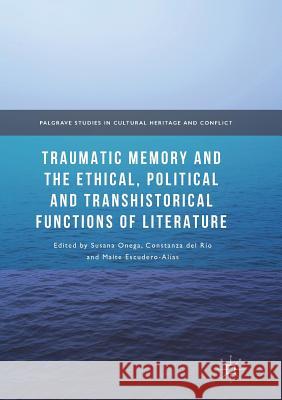Traumatic Memory and the Ethical, Political and Transhistorical Functions of Literature » książka
topmenu
Traumatic Memory and the Ethical, Political and Transhistorical Functions of Literature
ISBN-13: 9783319856155 / Angielski / Miękka / 2018 / 331 str.
Kategorie:
Kategorie BISAC:
Wydawca:
Palgrave MacMillan
Seria wydawnicza:
Język:
Angielski
ISBN-13:
9783319856155
Rok wydania:
2018
Wydanie:
Softcover Repri
Ilość stron:
331
Waga:
0.41 kg
Wymiary:
21.01 x 14.81 x 1.83
Oprawa:
Miękka
Wolumenów:
01
Dodatkowe informacje:
Wydanie ilustrowane











